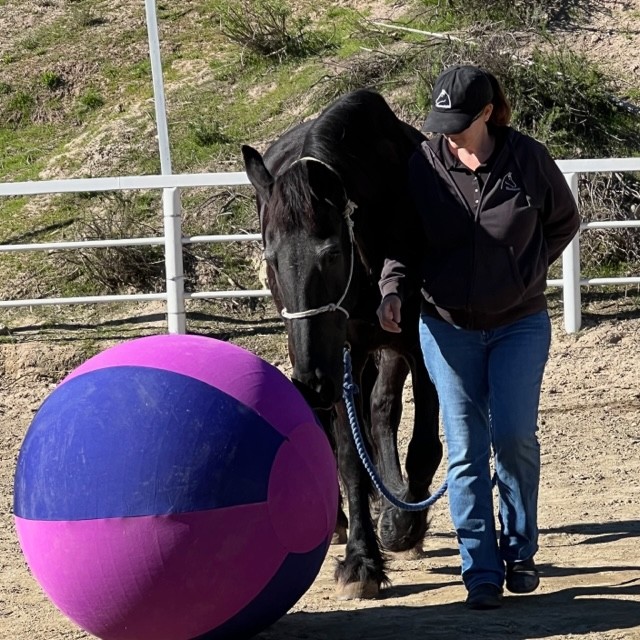We recently connected with Elizabeth Zarkos and have shared our conversation below.
Elizabeth, thanks for joining us, excited to have you contributing your stories and insights. Going back to the beginning – how did you come up with the idea in the first place?
Hanaeleh is named after the song “Puff the Magic Dragon” by Peter, Paul and Mary. My goal in naming the rescue after Hanaeleh was to create a place that was magical and ethereal.
I have wanted to open an animal rescue since I was in high school, but I didn’t think of helping to rescue horses until I was in college and helped to rescue a horse who was being neglected. A few years later I rescued a horse from a feedlot, two days from being sent to slaughter, and at that point realized how many horses needed help, and how few resources there were for them- at least in Southern California.
I realized after doing more research that there were horses across the U.S. being sent to slaughter; at that time there were 11 slaughterhouses operating in the United States. It was imperative to me that all slaughter needed to be stopped, and from there became the need for Hanaeleh to be focused as much on equine advocacy as it was on rescuing horses. In order to help the greatest amount of horses, it was important to help educate people about how to better care for and treat horses in general. The goal then became to not only help rescue the few horses we could with the budget we had, but to do what we could to help improve the lives of horses across the United States.
I was told several times by several different people that starting a rescue would be too overwhelming and cost too much, and that we would have too little of an impact because we were so small and insignificant. It was true that we were small, but the internet was just starting to be more prevalent in people’s lives, and with the advent of social media, we were able to greatly expand our network and reach a greater number of people. Overall, however, we weren’t concerned about whether or not we would succeed, because the alternative was that Hanaeleh just wouldn’t exist, and the horses in our care would be in danger. Additionally, I made it one of my goals to end horse slaughter in the United States- which would include any shipping of horses across federal lines to Mexico or Canada. We have not yet been able to get a federal law passed that would prohibit horse slaughter, but we are continuing to work towards that goal.


As always, we appreciate you sharing your insights and we’ve got a few more questions for you, but before we get to all of that can you take a minute to introduce yourself and give our readers some of your back background and context?
Hanaeleh is a non-profit horse rescue in Orange County, CA that was started in 2004. We lease approximately two acres in Trabuco Canyon, and currently have 17 horses, 3 sheep, four chickens and a handful of barn kitties. We are an all-breed rescue, although we focus on horses who are in imminent danger, are older, or have medical or emotional issues that would be overwhelming (or unwelcome) for a traditional horse owner. For those horses who are sound and rideable, we use our network to help them find homes, so they do not usually come to Hanaeleh.
Hanaeleh was started as a grassroots rescue, rooted in a desire to promote equine advocacy as well as to help rescue horses in need. Hanaeleh’s logo and inspiration comes from Cleopatra, an Arabian horse that was rescued from a feedlot only two days before being sent to slaughter. As such, one of our goals is to end horse slaughter in the United States.
We are a 100% volunteer rescue, with no one who works at the rescue receiving any payment for their services. Our feed suppliers, farrier and veterinarian do help to discount their services as well. The horses at our rescue are treated with the utmost care, as if they were each our own. They are turned out and groomed regularly, given grain and supplements every evening, and are fed multiple times per day in order to promote the best health and well-being of our horses. Overall, everything Hanaeleh does is for the horses.
Hanaeleh focuses on caring for the horses at the ranch, but we have also create a vast network online and with trainers and other horse owners. This has allowed us to help place dozens of horses every year that do not come into the rescue, but are able to find new homes directly from their previous one. We network the horses who are more able to find a home- the ones who are trained, serviceably sound and healthy. This allows us to focus on the horses who are older, and those horses who have physical, medical or emotional needs that are often over and beyond what most laypeople are able to handle. By networking the horses that can easily find a home, Hanaeleh can focus on taking in the horses who are most in need.
Finally, Hanaeleh focuses on creating networks between other rescues and another equine advocates. We are a small group of people who are often fighting against huge amounts of money and power in business and the government, and the only way we are going to win is if we work together. We believe that creating these coalitions is imperative to pushing through our message of advocacy and compassion.
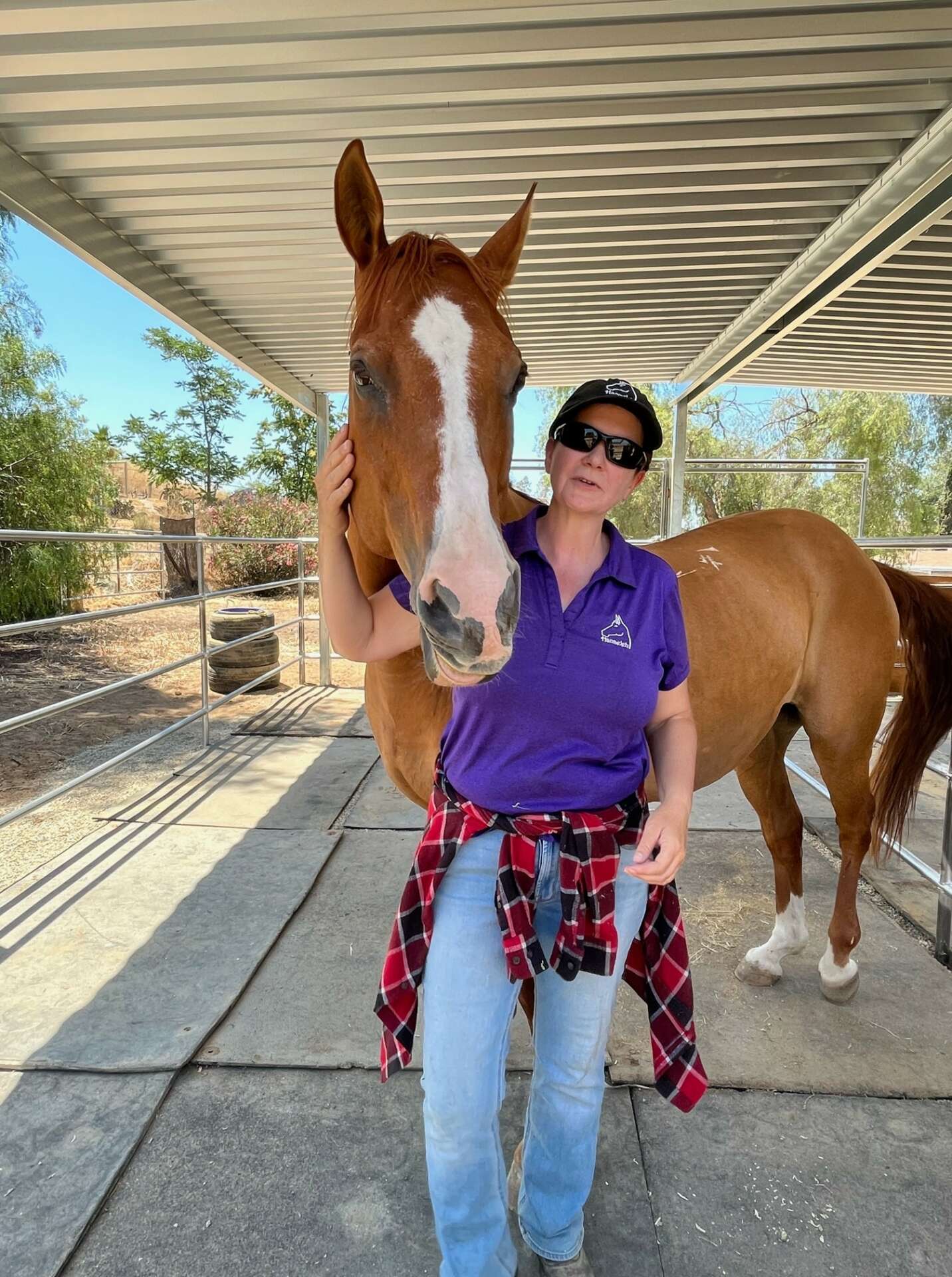
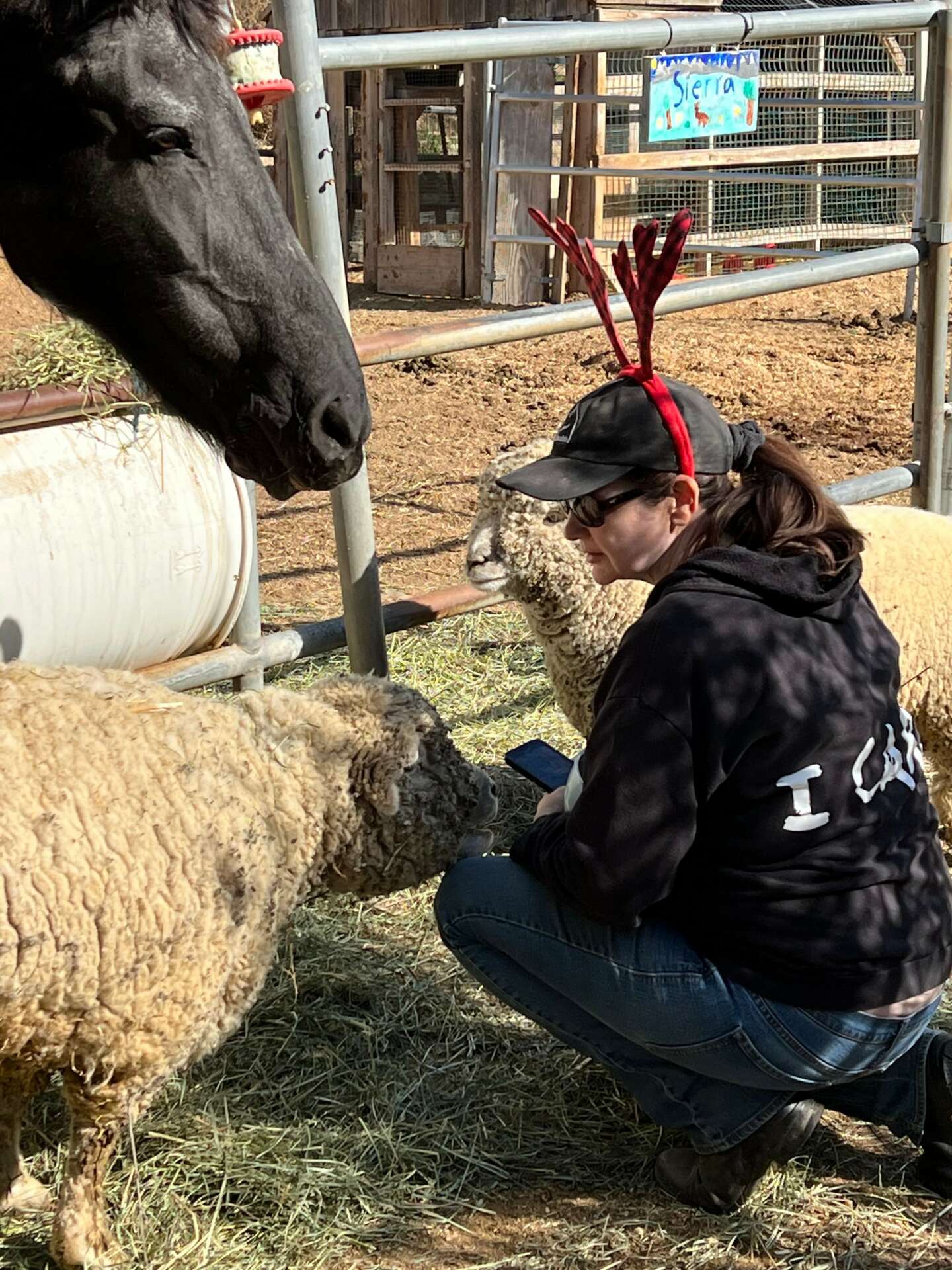
Any fun sales or marketing stories?
For several years Hanaeleh operated on a shoestring budget, with me putting in most of the monies to help fund the rescue. One of our newer volunteers walked up to me one day and asked who was in charge of our social media- this was almost 10 years ago now, and social media wasn’t nearly as prevalent as it is today. We had a Facebook account, and we had about 100 followers. Honestly, we just didn’t see how social media could help us, other than get our message out to more people.
The volunteer, Kathi Kruse, however, knew social media- that was her actual job. She understood how algorithms worked, and how they constantly changed depending upon the whims of different social media platforms. In a very short amount of time she was able to grow the page to over 10,000 organic followers, and that number kept increasing. We were obviously thrilled, but- again, we didn’t see how we could monetize our increased follower count.
Kathi, however, suggested an online fundraiser- we had seen online silent auctions, but not an actual online fundraiser. Since she had been so successful, however, we decided to let her run with it and see what she could do. Within a few weeks, she had raised $5,000- with only a small investment in Facebook ads, we had outraised our last in-person fundraiser that had taken an excruciatingly huge amount of work.
We continued to do in-person fundraisers, but found that conducting three online fundraisers per year allowed us to create a steady stream of income for the rescue that we never had before- and with no physical labor or hours of preparation that in-person fundraisers require. Kathi also focused on increasing our newsletter subscribers, and focused on increasing our monthly sponsors, which stabilized our finances, allowing us to grow and take on more horses. Additionally, when Covid hit, we were able to continue to pay for the rescue without the in-person fundraisers, although any number of small non-profits were forced to close down.
I don’t know where we would be currently without having these online fundraisers, or without someone so knowledgeable about social media in charge of our marketing. When I started the rescue, Facebook had just launched as TheFacebook, and sites such as Instagram and Twitter didn’t even exist. We could not have anticipated how important social media would be not only to fundraising, but also in networking animals in need.
We were very lucky in having someone so knowledgeable as a volunteer offer to help, but we also were open to trying new and different ways of increasing our revenue stream. I think it’s important for any business, especially non-profits, to be open to trying out new ways of reaching their audience and not being stuck in doing things a certain way just because they’ve always been done that way before.
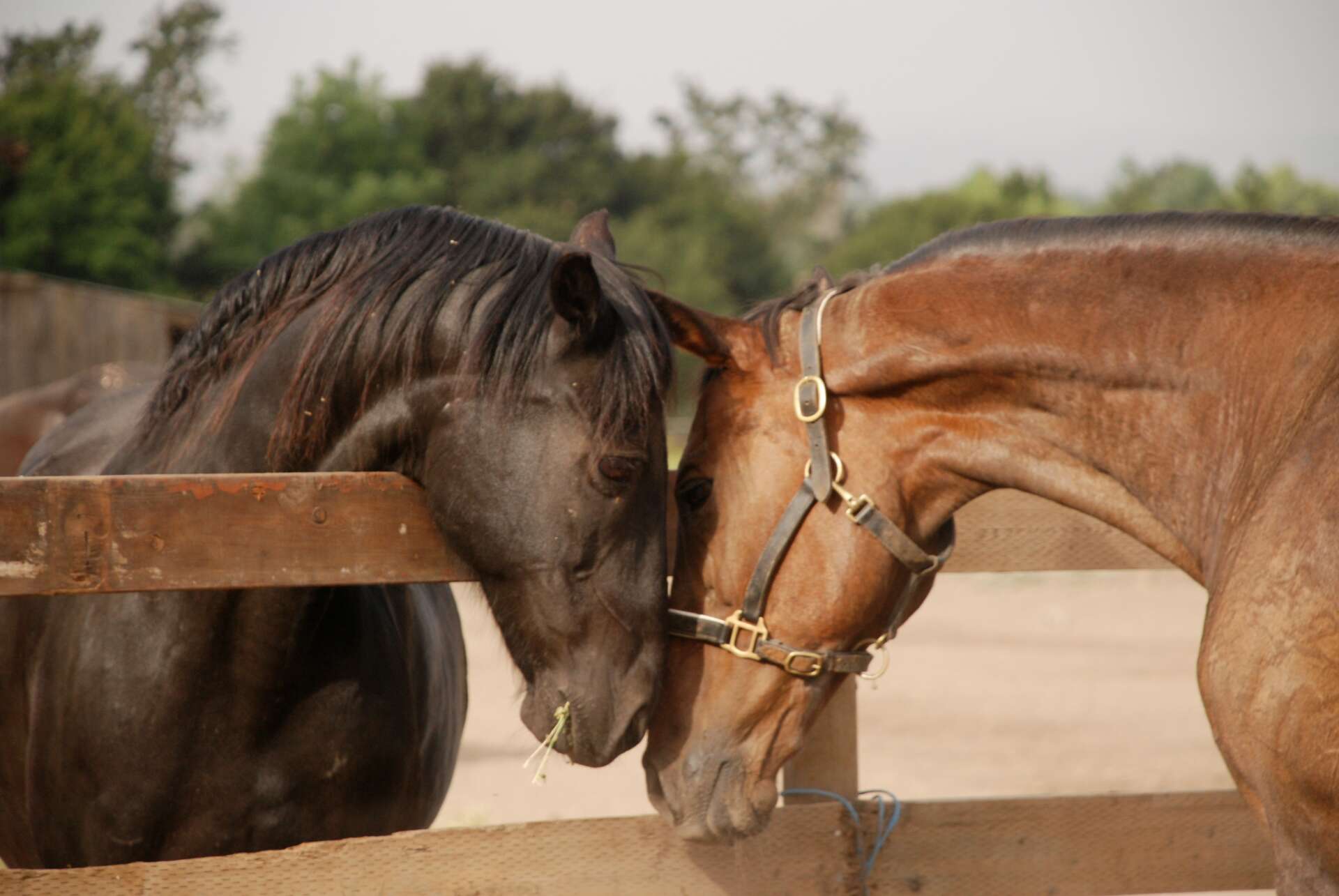

Any advice for managing a team?
Non-profits statistically have a high turnover, and our rescue is no different. Unfortunately, asking people to work very hard in the elements on their weekends- every weekend- is a lot for any individual. Even if people are willing to do the difficult work of caring for the horses, they have families and lives that interfere with the schedules of even the most dedicated volunteer. Additionally, with any sort of backbreaking work that is required at a horse rescue, people find that they are physically unable to perform the tasks.
That being said, we have been very lucky to have volunteers who have been with us for over a decade, and I believe it is for the simple fact that our focus is on the horses, and we do everything FOR the horses- not for ourselves. While we do what we can to make things easier for the volunteers (snacks, refreshments, etc.), this in and of itself I don’t think would keep people doing the work every weekend for years on end. What does keep people coming is knowing that we are all working towards the same goal, and we are all working for something important. Additionally, EVERYONE works hard- no matter the position or how long the person has been at the ranch; we all pitch in and do the work. Obviously some volunteers have physical issues that prevent them from doing the heaviest jobs, but everyone does what they can do.
I am a teacher, and one of the things that gives students assurance is a schedule and routine- this is true not just for children, but also horses- and adult humans as well. We may balk at our humdrum lives sometimes, but secretly most people crave some sort of routine as it allows us to feel secure. When we work with the horses, we do it the same way each time- this helps make the horses feel more secure, but it also allows the individuals a feeling of competency because they get to be quite good at doing the assigned task. That being said, horses are never the same creature each day, so there is always a sense of newness that helps to prevent the task from being boring.
Additionally, I have found that maintaining a presence at the rescue and ensuring to the volunteers that we are competent is important. People want to be a part of an organization that is run well and efficiently- no one wants to be part of a proverbial shitshow. So many people have come to me from other rescues with horror stories about how unorganized the environment was- and how that negatively affected the animals. People want to be a part of something- but that something has to be orderly and structured so people can know their job and what they are supposed to do.
Finally, everyone has an opinion about everything, and instead of pretending our way is the best way, we acknowledge that there are other ways to do the job- our way is just a way. We are open to other ideas, but we also explain why we have chosen to do something a certain way- there is logic behind all of our decisions, and this helps to give the volunteers a sense of security and knowledge that the reason their way may not be the way we do something is not because they are not being heard or their opinion respected, but rather their way is not the ideal solution for our particular situation. Listening to people’s needs and concerns is important, and acting on them when required is necessary as well, but so is knowing when to let them know that we can listen to them and discern when it is appropriate to act- or when not to. Instead of feeling as if they are being ignored, we have made a thoughtful decision based upon our experience not to act.
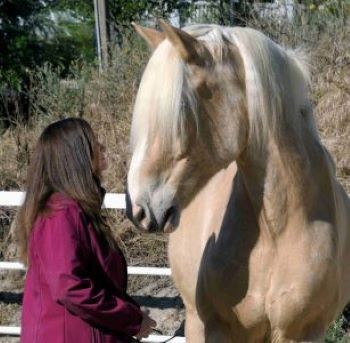
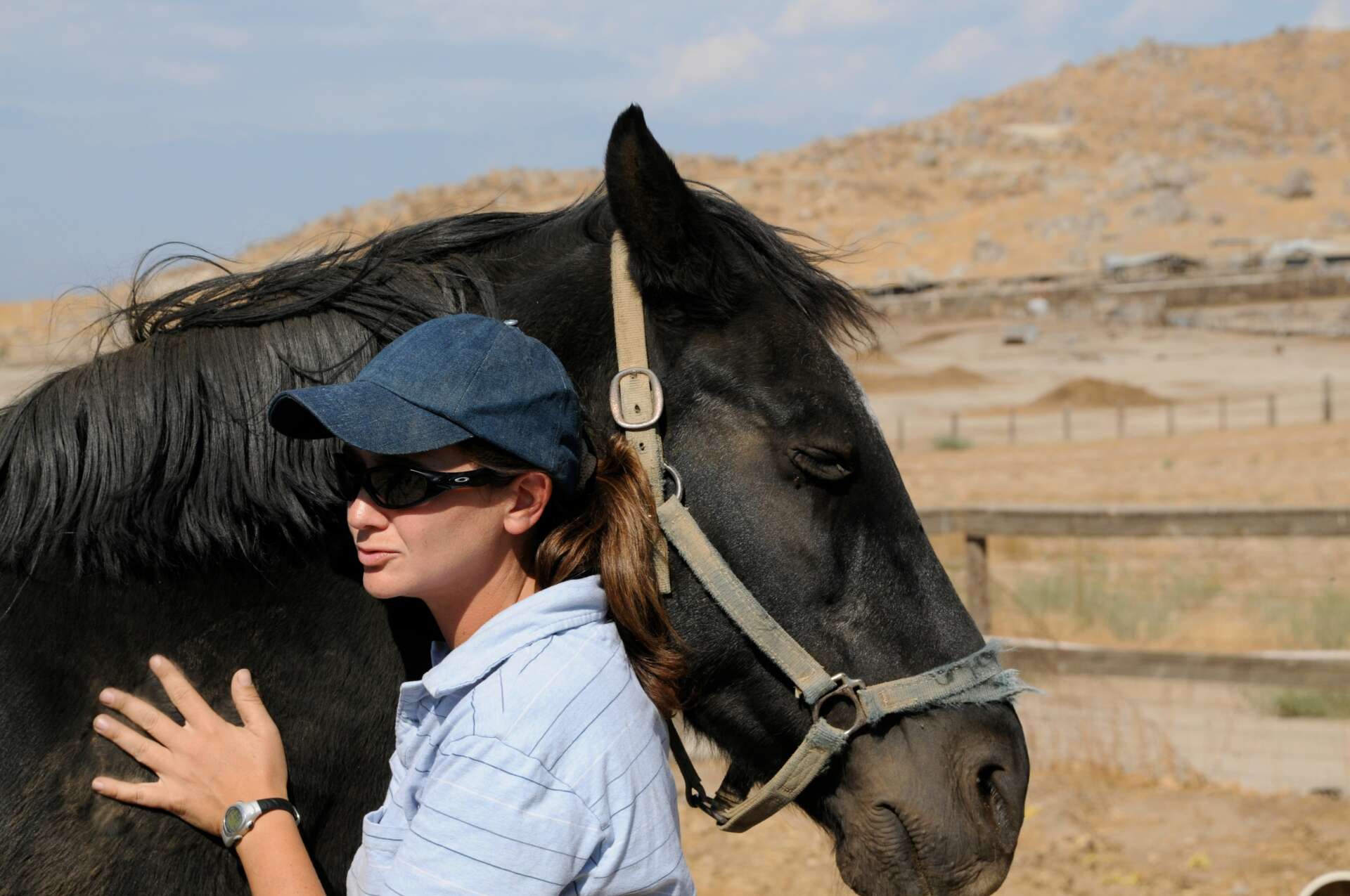
Contact Info:
- Website: www.hanaeleh.org
- Instagram: www.instagram.com/hanaeleh/?hl=en
- Facebook: www.facebook.com/hanaeleh
- Linkedin: www.linkedin.com/company/hanaeleh/
- Twitter: www.twitter.com/hanaeleh
- Youtube: www.youtube.com/user/hanaeleh
Image Credits
Lori Bocchicchio Kathi Kruse


